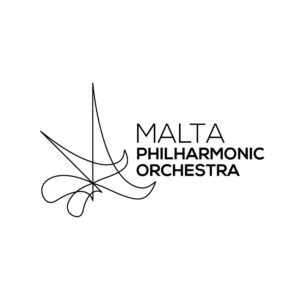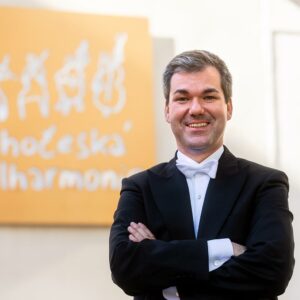Contemporary Colours Vol 2
Malta Philharmonic Orchestra
Miran Vaupotić conductor
Lauded by Gramophone Magazine for the “well-drilled performances” delivered in their first installment, the Malta Philharmonic Orchestra returns with CONTEMPORARY COLOURS VOL 2, the long-awaited follow up to their 2020 Navona Records release. A keen promoter of Maltese composers, the orchestra brings to life works that explore themes of Greek tragedy, religious symbolism, existential philosophy, struggles that shape the human experience, and more. Conductor Miran Vautopić leads the celebrated ensemble through this exhilarating display of Maltese virtuosity.
Listen
Stream/Buy
Choose your platform

Experience in Immersive Audio
This album is available in spatial audio on compatible devices.
Stream now on Apple Music, Tidal, and Amazon Music.
Track Listing & Credits
| # | Title | Composer | Performer | |
|---|---|---|---|---|
| 01 | Longing | Kris Spiteri | Malta Philharmonic Orchestra | Miran Vaupotić, conductor | 3:57 |
| 02 | Elegy | Steven-Joseph Psaila | Malta Philharmonic Orchestra | Miran Vaupotić, conductor | 4:51 |
| 03 | Crux | Josef Bugeja | Malta Philharmonic Orchestra | Miran Vaupotić, conductor | 8:04 |
| 04 | Adagio No. 2, Op. 40 | Joseph Sammut | Malta Philharmonic Orchestra | Miran Vaupotić, conductor | 6:43 |
| 05 | Two Episodes from Antigone: I. The Illegal Burial | Albert Pace | Alexandre Razera, solo viola; Malta Philharmonic Orchestra | Miran Vaupotić, conductor | 4:21 |
| 06 | Two Episodes from Antigone: II. Determination, Doubt, and Remembrance of Things Past | Albert Pace | Alexandre Razera, solo viola; Malta Philharmonic Orchestra | Miran Vaupotić, conductor | 5:27 |
| 07 | The Forbidden IV | Ruben Zahra | Malta Philharmonic Orchestra | Miran Vaupotić, conductor | 5:04 |
| 08 | Cataclysmus | Kristian Schembri | Malta Philharmonic Orchestra | Miran Vaupotić, conductor | 10:41 |
| 09 | Waiting for Godot | Reuben Pace | Malta Philharmonic Orchestra | Miran Vaupotić, conductor | 9:03 |
Recorded November 14-17, 2023 at the Catholic Institute in Floriana, Malta
Session Producer & Engineer Jan Košulič
Recording Engineer Bernard Camillieri
Microphone & Sound Technician Maria Galea
Rigger Mario Axiaq, Ludwig Cole, Blazhe Jovanovski
System Engineer Aaron Galea
Sound Technician Eftimija Jovanova, Andrew Camillieri, Fernando Castro
Editing Jan Košulič
Mastering Melanie Montgomery
Immersive Audio Engineer Brad Michel
Executive Producer Bob Lord
VP of A&R Brandon MacNeil
VP of Production Jan Košulič
Audio Director Lucas Paquette
Production Manager Martina Watzková
Production Assistant Adam Lysák
VP, Design & Marketing Brett Picknell
Art Director Ryan Harrison
Design Edward A. Fleming
Publicity Aidan Curran
Digital Marketing Manager Brett Iannucci
Artist Information

Malta Philharmonic Orchestra
For half a century, the Malta Philharmonic Orchestra (MPO) has been Malta’s leading musical ensemble. The orchestra was founded in April 1968, when musicians from the defunct Commander-in-Chief (C-in-C) orchestra of the Malta-based British Mediterranean Fleet regrouped as the Manoel Theatre Orchestra. It continued to serve as the theatre’s resident orchestra until September 1997, when it became an independent orchestra, taking up the name National Orchestra of Malta. The orchestra became the MPO in 2008 when it expanded to a full-sized symphony orchestra, bringing together the best of Maltese talent and musicians from Europe and beyond.

Miran Vaupotić
Acclaimed as “dynamic and knowledgeable” by the Buenos Aires Herald, Croatian conductor Miran Vaupotić has worked with eminent orchestras including the London Symphony Orchestra, the Royal Scottish National Orchestra, the Berliner Symphoniker, the Russian National Orchestra, the Slovak Radio Symphony Orchestra, the Prague Radio Symphony Orchestra, the Budapest Symphony Orchestra MÁV, Orchestre de Chambre de Genève, the Cairo Symphony Orchestra, Orquesta Sinfónica Nacional Argentina, and others, performing in major halls around the globe such as Carnegie Hall, Wiener Musikverein, Berliner Philharmonie, Rudolfinum, Smetana Hall, Victoria Hall, Forbidden City Concert Hall, Shanghai Oriental Art Center, Dubai Opera, Tchaikovsky Hall, International House of Music, CBC Glenn Gould Studio, and more.

Kris Spiteri
Kris Spiteri is a music director, pianist, and composer. After graduating in music studies from the University of Malta, he co-wrote Porn – The Musical, which won Best New Musical at the Off West End Theatre Awards in London and was critic’s choice in Time Out London. He directed Hairspray, Fiddler on the Roof, My Fair Lady, Mamma Mia, We Will Rock You, Matilda, La Cage Aux Folles, Grease, Oliver, and numerous pantomimes. Other theatrical shows he co-wrote include Daqsxejn ta Requiem lil Leli and Il-Qfil u l-Ħelsien Skont Manwel Dimech. Spiteri wrote music and lyrics for Kafena’s album Lukanda Propaganda, Tbissem, sung by Ira Losco and Matthew James Borg, and the album Till you switch off the Lights by Noir.

Steven-Joseph Psaila
Steven Joseph Psaila, born on April 19, 1984, is a Maltese composer and music educator. He began his musical journey at the age of 6, studying piano under Antoinette Borg. During his time at St. Edward’s College, he actively participated in school concerts and started performing his original piano compositions. Psaila later pursued a degree in Music Studies at the University of Malta, specializing in musicology and studying composition with Christopher Muscat.

Josef Bugeja
Following initial studies in piano, Josef Bugeja furthered his musical studies at the University of Malta, obtaining a Bachelor of Arts degree in Music and Philosophy (1998) and a Master of Music degree in Composition (2020), studying with Michael Laus, John Galea, as well as leading composers Charles Camilleri and Joseph Vella.

Joseph Sammut
Born in Valletta in 1926, Joseph Sammut first studied with his father, Vincenzo Sammut, a bassoonist at the Royal Opera House and a cellist with the Orchestra of the Commander in Chief of the Royal Navy.
He then joined the orchestra in 1942 as a bassoonist but he ended up conducting and composing. He would spend 16 years as the conductor of the Orchestra of the Commander in Chief of the Royal Navy. In 1968, the orchestra was disbanded and he decided to form the Manoel Theatre Orchestra.

Albert Pace
Albert Pace was born in Hamrun, Malta, in 1958. Pace studied composition with the Maltese composer Charles Camilleri, both privately and at the University of Malta, where he graduated in Music Studies in 1994, with a dissertation entitled Texture in late Twentieth Century Music. In 2007 Pace was the first one who was awarded Doctor of Music in Composition from the same university.

Ruben Zahra
The music of Ruben Zahra carries fragments from a variety of musical cultures. Influences from classical music, rock, folk, and jazz are transformed within the fabric of his individual contemporary aesthetic. Zahra is also committed to interdisciplinary expression connecting his music to film, dance, video art, theater, animation, and other artforms. Zahra studied music composition in Malta with Pawlu Grech and was awarded a scholarship by the Italian Cultural Institute to pursue his studies in Rome. He studied composition and orchestration with Azio Corghi at the National Academy of Santa Cecilia, electronic music with Giorgio Nottoli, and film music with Ennio Morricone. In 2002 he moved to Los Angeles and spent two years working for the Hollywood film industry. Since 2004 he has been based in Malta and works internationally as a freelance composer and producer.

Kristian Schembri
Kristian Schembri is a Maltese composer, conductor, and percussionist based in the United States. His music has been performed by ensembles such as the Cleveland Chamber Symphony, the Brno Philharmonic Orchestra, and the Malta Philharmonic Orchestra, and recorded by ABLAZE Records. Known for his versatility and eclecticism, Schembri’s catalog of works ranges from chamber music to micro-opera, choral music, wind band, and orchestral symphonic pieces. Schembri worked for nine years as a percussionist with the Malta Philharmonic Orchestra and is the co-founder of the award-winning viola-percussion ensemble Duo Schembri-Gallagher.

Reuben Pace
After beginning his musical journey at the age of 8, Reuben Pace went on to pursue a Bachelor of Arts in Music at the University of Malta, followed by a Post-Graduate Certificate in Education.
In September 2001 he completed a Master of Arts in Creative Music Technology and Music for Film, Media, and the Arts at the University of Wales, Bangor (United Kingdom). Subsequently, he worked for a Ph.D. in composition at the University of Wales, graduating in 2012.


